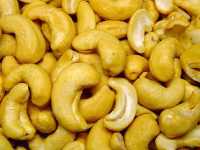
24 Jul Introducing Cashews in First Year of Life May Reduce Risk of Allergy
MedicalResearch.com Interview with:

Dr. Perrett
Kirsten P Perrett MD PhD
Group Leader/Clinician Scientist Fellow
Population Allergy Research Group and
Melbourne Children’s Trial Centre
Murdoch Children’s Research Institute
Rachel L Peters PhD
Murdoch Children’s Research Institute
Department of Paediatrics
The University of Melbourne
Parkville, Australia
MedicalResearch.com: What is the background for this study?

Response: The prevalence of food allergy has increased over the last 1-2 decades. Historically, parents were advised to withhold the introduction of allergenic foods, such as peanut or egg, until after the infant was 1-3 years of age in the hope that it would prevent food allergy. However, recent evidence has shown that introducing peanut and egg in the first year of life, reduces the risk of allergy to that food. This has led to a paradigm shift in infant feeding advice from active avoidance to timely introduction. However, there has not been any research advising on the timing of tree nuts, a common cause of food allergy,
MedicalResearch.com: What are the main findings?
Response: Our study of nearly 3000 children in the population-based HealthNuts study in Australia, found that only 5% had eaten cashew by age 12 months. Interestingly, no child who consumed cashew by age 12 months, developed cashew allergy at age 6 years; conversely 3.6% of those who had not consumed cashew by age 12 months did develop cashew allergy at age 6 years. Our findings suggest that introducing cashew in the first year of life may reduce the risk of cashew allergy.
MedicalResearch.com: What should readers take away from your report?
Response: Families to follow the infant feeding advice provided by their national health bodies. Australian guidelines recommend that infants should be introduced to common food allergens in the first year of life, unless they are already allergic to that food.
https://www.allergy.org.au/images/pcc/ASCIA_Guidelines_infant_feeding_and_allergy_prevention.pdf
MedicalResearch.com: What recommendations do you have for future research as a result of this work?
Response: Whilst these findings are promising and consistent with other research for peanut and egg allergy, the present study was observational. Randomised controlled trials are underway to confirm these findings.
Any disclosures? None relevant
Citation:
Peters, Rachel & Barret, Danny & Soriano, Victoria & Mcwilliam, Vicki & Lowe, Adrian & Ponsonby, Anne-Louise & Tang, Mimi & Dharmage, Shyamali & Gurrin, Lyle & Koplin, Jennifer & Perrett, Kirsten. (2020). No cashew allergy in infants introduced to cashew by age 1 year. Journal of Allergy and Clinical Immunology. 10.1016/j.jaci.2020.07.003.
https://www.jacionline.org/article/S0091-6749(20)30965-9/pdf
JOIN OUR EMAIL LIST
[mailpoet_form id="5"]We respect your privacy and will never share your details.
[last-modified]
The information on MedicalResearch.com is provided for educational purposes only, and is in no way intended to diagnose, cure, or treat any medical or other condition. Always seek the advice of your physician or other qualified health and ask your doctor any questions you may have regarding a medical condition. In addition to all other limitations and disclaimers in this agreement, service provider and its third party providers disclaim any liability or loss in connection with the content provided on this website.
Last Updated on July 24, 2020 by Marie Benz MD FAAD
